Illegal shooting, poisoning and gassing of badgers have been reported to police in the counties where official culls are taking place, the Guardian can reveal.
Investigations are continuing into eight of the 27 reports, which also includes illegal interference with setts. One has been passed to the Crown Prosecution Service, which will decide whether to prosecute two suspects. "We have done and will actively investigate all allegations of badger interference," said a spokesman for Gloucestershire police. The issue of possible illegal badger killing has become an important factor in the highly acrimonious debate over the culls, after the government slashed its estimates of the initial badger populations in the cull zones.
The environment secretary, Owen Paterson, told MPs the reason for the decline was "screamingly obvious, badgers are wild animals that live in an environment in which their numbers are impacted by weather and disease".
The UK's leading badger experts say that population falls of up to two-thirds due to natural variation would be unprecedented and that illegal killing and interference with the population research are more likely explanations. Good estimates of badger populations are crucial to the success of the pilot culls, which are intended to help reduce the rising incidence of tuberculosis in cattle. More than 28,000 cattle were slaughtered in 2012 at a cost of £100m to taxpayers.
Both culls have failed to kill the minimum number of badgers required under their licences in the six weeks allowed. The Somerset cull has been granted a three-week extension by Natural England and the Gloucester cull has applied for an eight-week extension. Killing too few badgers too slowly risks making TB worse as fleeing badgers spread the disease further afield, an effect called perturbation.
A spokesman for the Department for Environment, Food and Rural Affairs (Defra) said: "Defra has not received any allegations of illegal killing of badgers within the badger cull areas. If anyone has information about suspected wildlife crime they should contact police."
Andy Robertson, NFU director general, said: "There are many possible reasons as to why population sizes fluctuate. For example, there is evidence on the ground that adult badgers are in poor condition and that there are many fewer cubs than would be expected this year. Against that background we have not had reason or evidence to raise any concerns with Defra about illegal killing of badgers."
Mark Jones, executive director at the Humane Society International UK, said: "I find it unlikely that Defra and the NFU can be unaware of this very concerning problem. Badger baiting, digging out, gassing and snaring have always been a problem, but we are extremely worried that some people are viewing Defra's war on badgers as a green light to massacre these animals out of existence."
Gloucestershire police told the Guardian that since January it had received 24 reports of illegal activity involving badgers. There were three reports of "poisoning/gassing", three reports of "shot badgers" and 18 reports of sett "interference". Somerset police have recorded three reports in the last 15 months: one for a badger killing and two for interfering with a badger sett. Sky News reported an anonymous farmer claiming "unofficial trials" of gassing using a hosepipe and vehicle engines had been carried out on 14 farms in south-west England.
Prof Rosie Woodroffe, a key member of a decade-long landmark trial of badger culling, said: "It would be extraordinarily unusual for natural causes to change badger populations so rapidly at this scale – and indeed, no such changes have been seen at [other closely monitored sites]. It's much more likely that the change is either real, but human-caused, or artificial due to problems with the methods for counting badgers."
Prof David Macdonald, at Oxford University and the lead scientist on the board of Natural England, said: "Clearly, estimating badger populations is crucially important to evaluating the likely success of this badger cull in delivering a reduction in cases of TB in cattle." Apart from natural variation, he said: "Two other possible hypotheses come to mind. One is that the decrease has been due to people killing badgers illegally, which would in itself be counter-productive insofar as it worsened the perturbation problem. The other is that it is widely alleged that people opposed to the cull were taking fur samples from the sticky traps set [to help estimate badger numbers]. If so, this could lead to a miscalculation."
Macdonald, who thinks the Gloucestershire cull should be halted, said: "The hope that the cull might deliver the marginal gain originally predicted would be greatly diminished by a lack of reliability of the numbers."
A Defra spokesman said: "The interference with the hair traps is unlikely to account for the drop in numbers. Fluctuations in numbers of wildlife populations occur for a range of complex reasons that it is difficult to assess. We are not speculating on the causes for the drop in the badger population."
Dominic Dyer, from Care for the Wild International, said: "Defra's chief scientist and chief vet have a crucial role to play in providing credible independent scientific advice. If independent scientists have reached the conclusion that the most plausible explanation for the huge drop in badger numbers in the cull zones is due to widespread illegal killing, the chief scientist and chief vet must investigate this issue and if necessary recommend an immediate halt to the pilot badger cull trials in both Somerset and Gloucestershire."
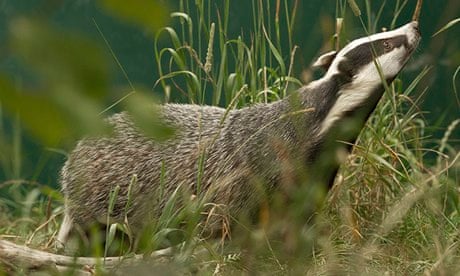
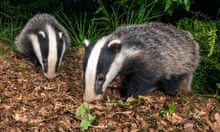
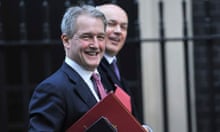
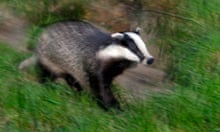
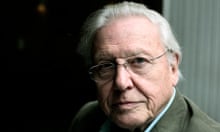
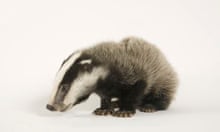
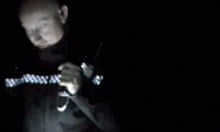

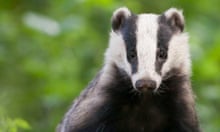
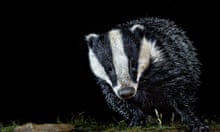
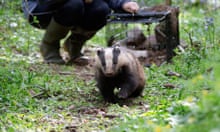
Comments (…)
Sign in or create your Guardian account to join the discussion